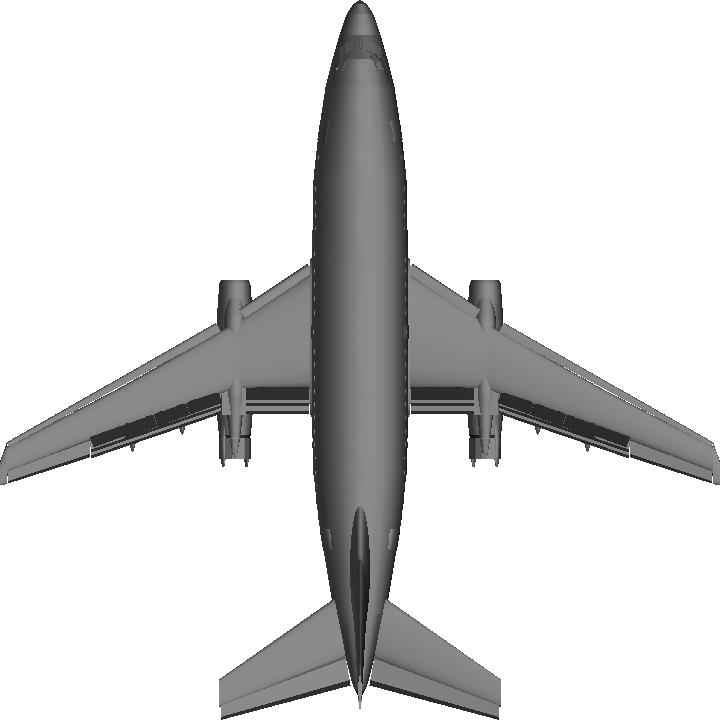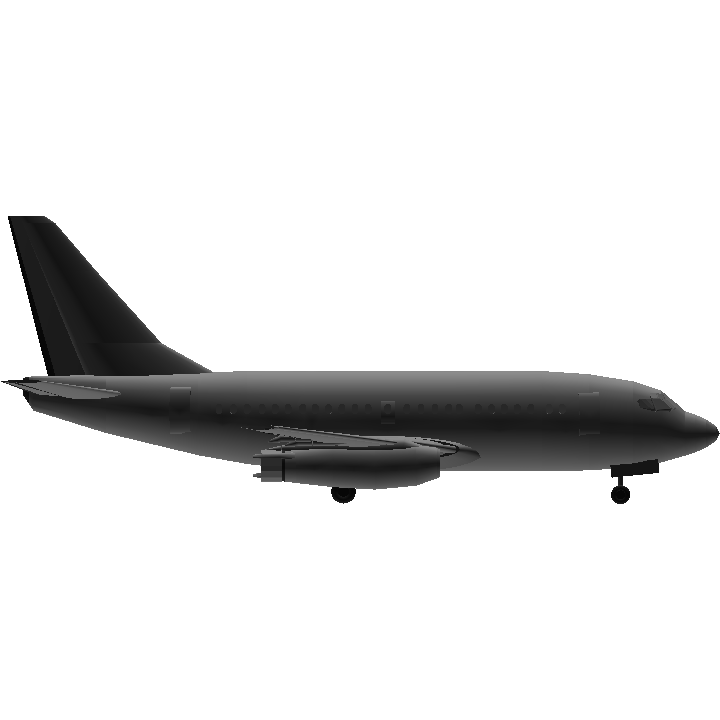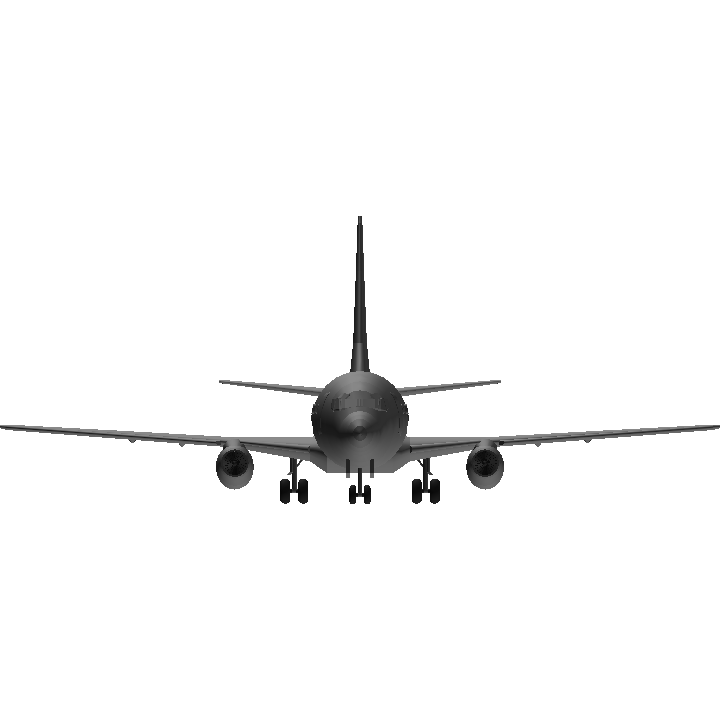VTOL: Flaps
Trim up: Spoiler
AG3: Reverser
Boeing 737 Original
The Boeing 737 Original is the name given to the -100/200 and -200 Advanced series of the Boeing 737 family.
Boeing 737-100
The initial model was the 737-100, the smallest variant of the 737 aircraft family, which was launched in February 1965 and entered service with Lufthansa in February 1968. In 1968, its unit cost was US$3.7M (1968), $27.2M today. A total of 30 737-100s were ordered: 22 by Lufthansa, 5 by Malaysia–Singapore Airlines (MSA) and 2 by Avianca with the final commercial aircraft delivered to MSA on October 31, 1969. The first aircraft used by Boeing as prototype under registration N73700 was later ordered by and delivered to NASA on July 26, 1973, which then operated it under registration N515NA and retired after 30 years on September 27, 2003. This was the last operated 737-100 and is the only remaining worldwide, which is on the static display in the Museum of Flight in Seattle.
The original engine nacelles incorporated thrust reversers taken from the 727 outboard nacelles. They proved to be relatively ineffective and tended to lift the aircraft up off the runway when deployed. This reduced the downforce on the main wheels thereby reducing the effectiveness of the wheel brakes. In 1968, an improvement to the thrust reversal system was introduced. A 48-inch tailpipe extension was added and new, target-style, thrust reversers were incorporated. The thrust reverser doors were set 35 degrees away from the vertical to allow the exhaust to be deflected inboard and over the wings and outboard and under the wings. The improvement became standard on all aircraft after March 1969, and a retrofit was provided for active aircraft. Boeing fixed the drag issue by introducing new longer nacelle/wing fairings, and improved the airflow over the flaps and slats. The production line also introduced an improvement to the flap system, allowing increased use during takeoff and landing. All these changes gave the aircraft a boost to payload and range, and improved short-field performance.
Picture

Credit
Plane from @AnIndonesianGuy
Note
This maybe will be my last post in silver because i almost reaching 5000 point
Thank you
Specifications
Spotlights
- CRJ900Pilot 3.9 years ago
General Characteristics
- Predecessor Boeing 737-200
- Successors 9 airplane(s) +245 bonus
- Created On Android
- Wingspan 85.7ft (26.1m)
- Length 85.8ft (26.2m)
- Height 34.4ft (10.5m)
- Empty Weight 45,894lbs (20,817kg)
- Loaded Weight 90,207lbs (40,917kg)
Performance
- Power/Weight Ratio 1.868
- Wing Loading 57.8lbs/ft2 (282.2kg/m2)
- Wing Area 1,560.6ft2 (145.0m2)
- Drag Points 25674
Parts
- Number of Parts 291
- Control Surfaces 5
- Performance Cost 1,622






smol 737
@UAviator i saw some users do that but it doesn't seem they got kicked or banned
@CRJ900Pilot thank you
@NusaFly002 lu juga napa jawab
@orangnormal001 ga nanya
This looks amazing! Hope this helps
Bang lu tau gk Boeing 737 500 ternyata
80% dari Boeing 737 200 tapi mesinya dibedain